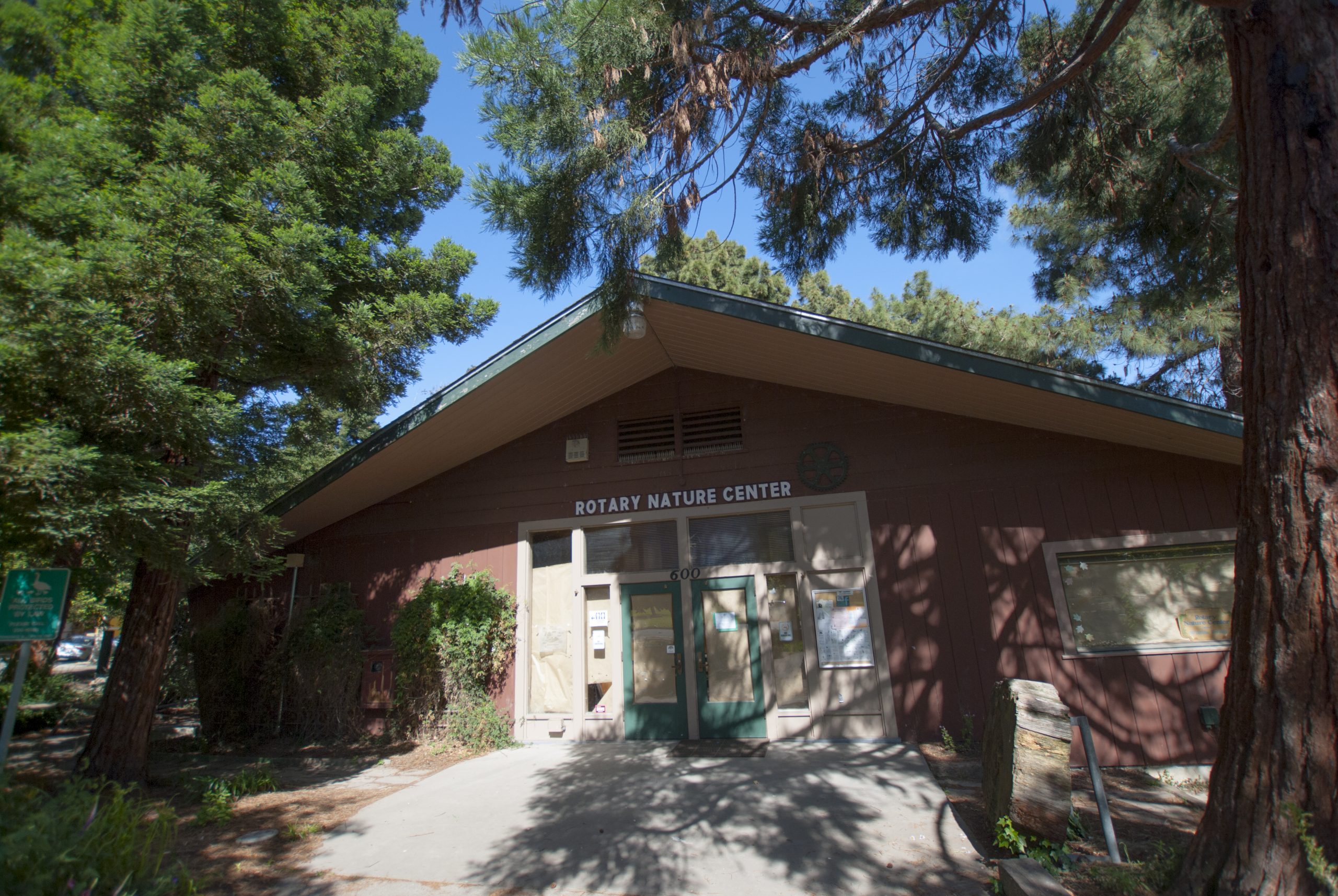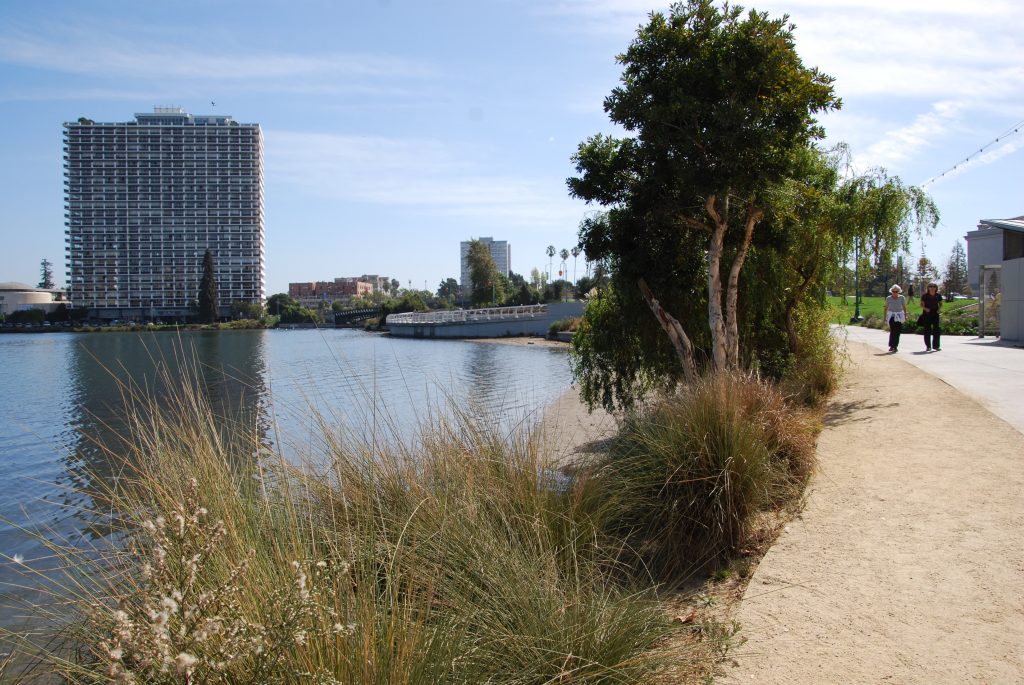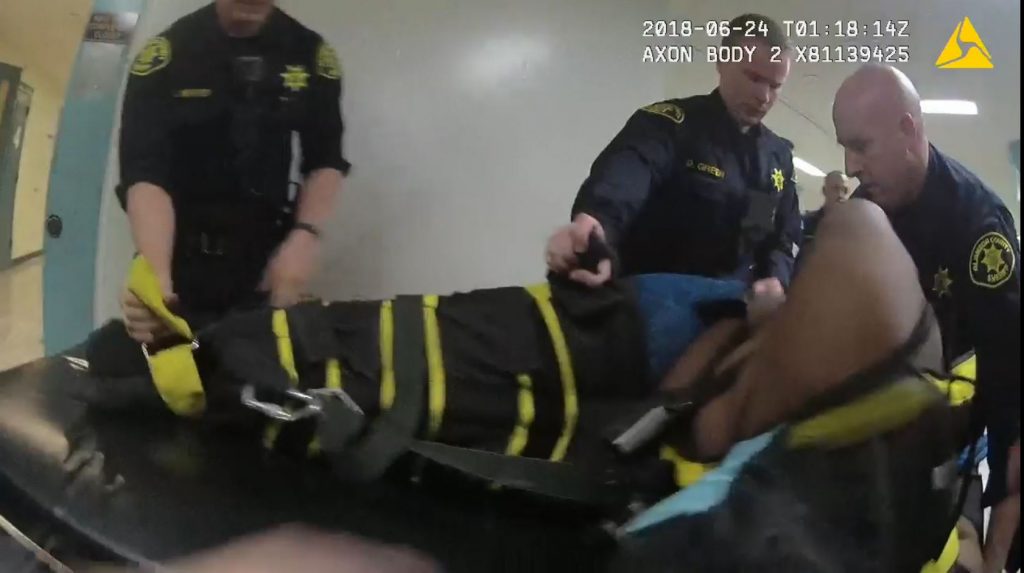Last March, the city of Oakland closed the Rotary Nature Center next to Lake Merritt, interrupting more than 50 years of continuous public access to the storied institution. City officials said they shut down the center for some long-needed cleaning, but there was also evidence that its resident animals had been mistreated, prompting an investigation. Nearly a year later, the center remains closed with no timeline for it to reopen.
People who have been involved with the nature center for years say the city has not been forthcoming with answers about when it might reopen and has turned down offers of volunteer help in cleaning and restoring the building. Before it closed, the center had recently fallen into disrepair, but its decline stretches back decades as the city slowly cut the center’s resources and slashed its staff. The extended closure has raised concerns that it may be permanently shuttered.
It appears little progress has been made on cleaning the building since it closed. As of early January, cobwebs covered the exterior, boxes of taxidermy were stacked inside, and some of the old educational posters were still hung on the wall. There were a few bottles of cleaning products spread out just beyond the front door.
Oakland Parks and Recreation Director J. Nicholas Williams, who was hired in June 2016, said in an interview in December that he toured the nature center last summer and found it in disrepair. After the building closed, city staffers discovered additional structural problems, he said, but it’s his intention to reopen the facility and continue using it as a nature center with more robust programming. “We understand it’s been closed longer than we desired,” Williams said, “but we plan to have a grand reopening and have next level programming at that facility.” Williams said he expected it to reopen the center in spring.
Since 1953, the small green and brown building has been an urban outpost for the natural sciences that has inspired generations of conservationists. It’s been a vibrant public interface between the people of Oakland and the Lake Merritt Wildlife Sanctuary, a stop-off point for migrating birds that was named the first wildlife refuge in North America in 1869.
In its early days, the nature center was run by Paul Covel, who worked in Oakland parks for 36 years and was one of the first municipal naturalists in the nation. Covel started as a volunteer in 1939 and by the late 1940s was paid by the Lake Merritt Breakfast Club to give nature talks by the duck pond. He was hired as municipal naturalist in 1948 by parks superintendent William Mott Jr. and oversaw the nature center after it opened.
Covel’s son, Jim Covel, who has worked for 27 years at the Monterey Bay Aquarium, said he remembers that his father always had a group of mostly high school age youth hanging around the nature center, many of whom went on to have careers in the natural sciences. “All got their start, I like to think, being able to exercise that curiosity about nature at Lakeside Park, and that was something my father always supported and encouraged,” he said.
At its peak in the ’60s and ’70s, there were four full-time employees at the nature center: a supervising naturalist, an assistant naturalist, and two animal keepers. There was also a large collection of animals at the time, including a variety of reptiles, like snakes, as well as a saltwater aquarium and some small mammals, like gophers and moles. Outside, there was a series of cages with raptors, like a golden eagle, turkey vultures, and owls, as well as racoons, skunks, and a coyote.
There continued to be four full-time employees until the late ’70s, according to Rex Burress, who started working at the center in 1961 and became the supervising naturalist after Paul Covel retired in 1975. There were three staff members there through the ’80s, but when Burress retired in 1993, his position wasn’t filled. Stephanie Benavidez took over as the supervising naturalist, and as of the late ’90s, was the only full-time staffer at the center.
Benavidez had been hired by Paul Covel the year before he retired. “He was very proud of her and very proud of making that hire,” Jim Covel said. “She was a very quick study and learned a lot about the lake. She did a lot to keep it going for a long time as resources were dwindling.”
Benavidez was generally well liked by children and their parents. She was even the inspiration for a children’s book character in I Can Hear the Sun by Patricia Polacco, about a homeless young boy who befriends the woman who takes care of the geese by Lake Merritt. Her former colleagues remember her as deeply devoted to the nature center and the wildlife refuge.
But with fewer staffers, Benavidez’s responsibilities mounted. She was also running programs around the lake and elsewhere in Oakland, like in Joaquin Miller Park. Meanwhile, her health was deteriorating. Burress said the last time he saw her was last year when he accepted an award in Martinez. She had lost all her teeth from diabetes and had reportedly become homeless and was living in a city van. She didn’t respond to interview requests.
When the center closed in March, a rescue group retrieved mistreated animals from the building. Lila Talcott Travis of Yggdrasil Urban Wildlife Rescue, which rescued the reptiles, said two box turtles and a tortoise were mostly kept in a closet for 15 years in soiled boxes and didn’t receive proper beak or nail maintenance, making it difficult for them to eat and twisting their fingers into clumps. One tortoise was suffering from shell rot “because she was unable to get out of her own feces for years,” Travis wrote in a fundraiser for her organization last year. Judy Hardin, owner of the El Cerrito-based RabbitEars, took in two guinea pigs and a mouse from the center. She said they had been suffering from mites and runny noses.
By all accounts, the nature center had become pretty run down in recent years. Areca Smit, president of Community for Lake Merritt, said she and some friends founded their volunteer group in 2016 to assist with the center. From what Smit could tell, Benavidez was clearly overworked and spent little time actually in the center and instead was constantly running around to other parks, driving kids to after-school programs, and attending meetings. “She didn’t seem to take days off; she’s working seven days a week,” Smit said.
Much of the day-to-day maintenance at the nature center was handled by a series of part-time staffers who would rotate frequently throughout the year because they weren’t allowed to work more than 1,000 hours annually.
Smit said she reached out to Williams, offering to organize volunteer help and met with him and other parks officials after the closure. Her group includes science teachers and academics, people with experience in nonprofit outreach and grant writing, and longtime volunteers at the nature center and elsewhere in Oakland parks, but she said Williams indicated to her that the city planned to hire an outside consultant.
“Most of my emails don’t get responses,” Smit said. “In the meeting, they were very nice, but, ultimately, they didn’t take me up on anything. They said there would be a meeting with the community but months and months have passed and there’s nothing, and I don’t know why.”



